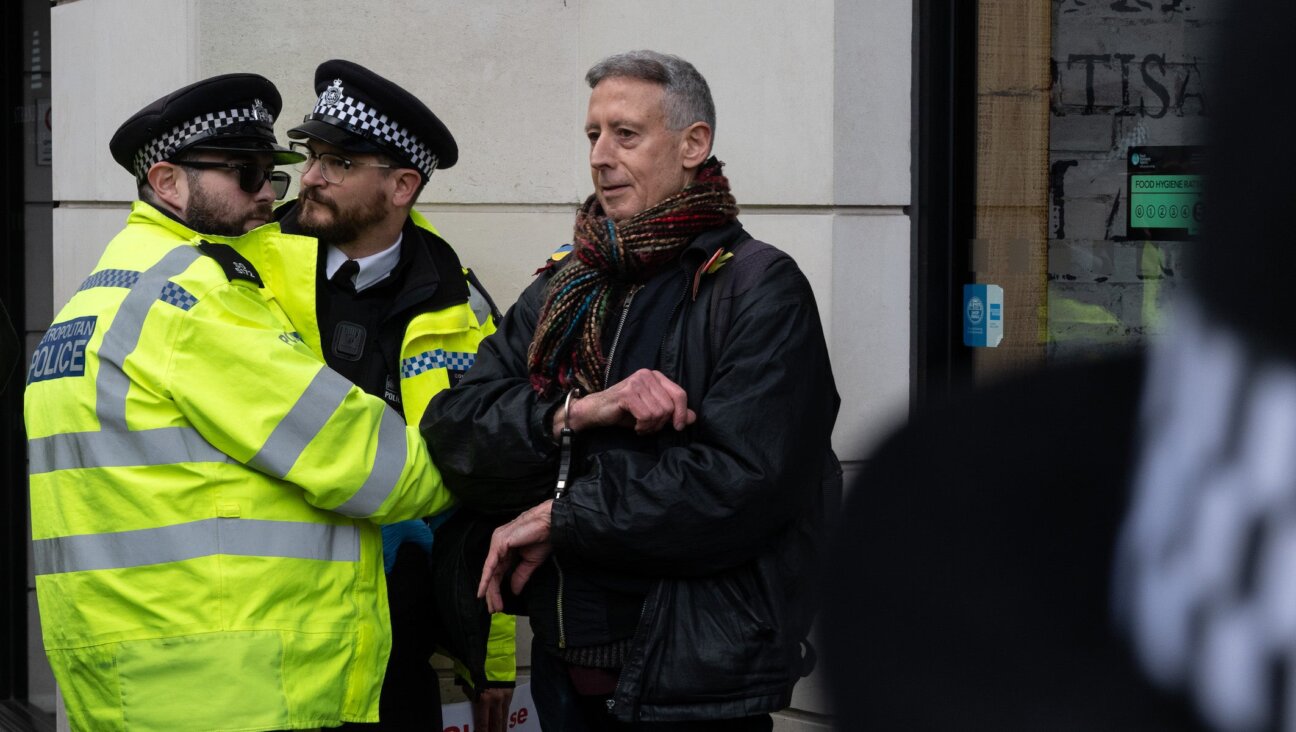The Last Pope Shaped by the Shoah

At the Wall: Pope Benedict XVI made a historic trip to Israel in 2009. Image by Getty Images
The resignation of Pope Benedict XVI will symbolically bring to an end a remarkable period in Catholic-Jewish relations. Benedict and his predecessor, Pope John Paul II, were personally involved in two 20th-century events that had a profound effect on this relationship — the Shoah and the Second Vatican Council. It is nearly certain that the next pope will have little if any personal connection to these events, and probably a different relationship to Jews and Judaism.
Certainly, the popes’ experiences during the Shoah differed. John Paul, who grew up in Poland, had Jewish friends who were murdered by the Nazis. Benedict, as a teenager in Bavaria, joined the Hitler Youth. He expressed a sense of the burden he carried when he mentioned his unease at visiting Auschwitz as “a Pope from Germany.” Both spoke of a personal connection to the horrors of the Shoah, meeting with survivors and traveling to death camps.
Both also participated in the path- breaking Second Vatican Council (1962–65), at which the church, in its declaration Nostra Aetate, dramatically split with centuries of anti-Jewish teachings. Meeting not long after the slaughter of Jews in “Christian” Europe, the council rejected the characterization of Jews as “Christ-killers” and as accursed by God. In particular, the participants who knew Jews or who were themselves Jewish converts to Catholicism were eager to dispel such age-old slanders. The future popes, young men at the time of the council, later spoke of their commitment to carrying forward the council’s message.
The popes’ personal connections to these events matter, as they were both deeply affected by them and institutionalized many of the council’s positive changes. John Paul made remarkable efforts to buttress Nostra Aetate with additional statements on Judaism and warm outreach to Jews. Benedict has often followed John Paul’s lead, though with less sure-footedness.
Most important, Benedict has consistently affirmed the authority of the council and subsequent documents. Jews, he said, are “still… heirs of that election to which God is faithful.” There can be no return to an earlier period of mistrust and hostility. Though seemingly abstruse, theological claims that legitimize Judaism, first affirmed by Vatican II, are highly significant and will shape future Catholic thinking. Breaking with millennia of degradation, they root Catholic teachings about Jews in a positive framework of respect and even admiration.
On specific topics of concern to the Jewish community, however, Benedict’s record is mixed. When it came to the bitterly divisive Israeli-Palestinian conflict, he has avoided imbalanced advocacy or blame for either side. While many Protestant churches have lurched to the left or the right, the Vatican under Benedict hewed to a middle course, a firm position that is likely to be continued. It refused to cast the political conflict in religious (meaning Christian) terms, successfully avoiding the anti-Jewish imagery some Protestant critics have used against the Jewish state.
Most problematically, perhaps, were the moments when Benedict’s poorly chosen words and actions brought up painful tensions between Catholics and Jews, ones thought to have been put to rest by the papacy of John Paul II. Benedict supported liturgical and theological changes that at best prompted doubts about his sensitivity to Jewish concerns and at worst led some to worry about countervailing currents in the church generally. For example, his approval of the use of a Good Friday prayer for the conversion of the Jews for those saying the old Latin Mass, or his revocation of the excommunication of schismatic bishops (including one who publicly denied the Shoah, which Benedict said he didn’t know at the time), provoked anger and disappointment. He has been a vigorous advocate of sainthood for Pope Pius XII, whose failure to publicly denounce Nazi persecution of the Jews troubles many.
What might the post-Benedict future hold for Jewish-Catholic relations? The generally improved relationship with Jews is still on secure footing, though the flashpoints of Benedict’s papacy, involving, for example, the position on schismatic Catholics and Pius XII’s sainthood, do point to possible future strains.
The next pope will likely lack any personal connection to the Shoah and the shock it posed to Catholic anti-Jewish teachings. Its bracing influence will inevitably diminish over time, along with the impetus for engagement with Jews. If the pope is from outside North America or Europe, he may know few Jews and view other interreligious relationships as more important. At the same time, it may be easier for some Catholics to dissent from contemporary pro-Jewish teachings. Benedict’s affirmation of God’s covenant with the Jews and opposition to a mission to the Jews, for example, have been questioned by some prominent theologians. Though they are in the minority, the growing ranks of conservatives in the church give the Jewish community reason for concern.
The next pope will undoubtedly voice his strong commitment to Jewish-Catholic relations. Whether he is from Argentina, Italy or Ghana, the legacy of anti-Jewish teachings and the burden of the Shoah will not disappear. They may, however, wane in importance in a church increasingly concerned with other issues and increasingly centered in regions where such issues are peripheral.
Adam Gregerman is a scholar at the Institute for Christian & Jewish Studies, in Baltimore.















